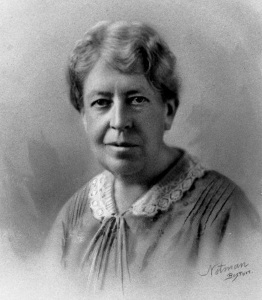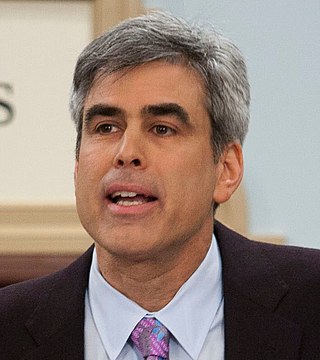Related Research Articles
Lawrence Kohlberg was an American psychologist best known for his theory of stages of moral development.

Albert Bandura was a Canadian-American psychologist. He was a professor of social science in psychology at Stanford University.

Carol Gilligan is an American feminist,ethicist,and psychologist,best known for her work on ethical community and ethical relationships.
Sir Frederic Charles Bartlett FRS was a British psychologist and the first professor of experimental psychology at the University of Cambridge. He was one of the forerunners of cognitive psychology as well as cultural psychology. Bartlett considered most of his own work on cognitive psychology to be a study in social psychology,but he was also interested in anthropology,moral science,philosophy,and sociology. Bartlett proudly referred to himself as "a Cambridge psychologist" because while he was at the University of Cambridge,settling for one type of psychology was not an option.

Howard Earl Gardner is an American developmental psychologist and the John H. and Elisabeth A. Hobbs Research Professor of Cognition and Education at Harvard University. He was a founding member of Harvard Project Zero in 1967 and held leadership roles at that research center from 1972 to 2023. Since 1995,he has been the co-director of The Good Project.

Mary Whiton Calkins was an American philosopher and psychologist,whose work informed theory and research of memory,dreams and the self. In 1903,Calkins was the twelfth in a listing of fifty psychologists with the most merit,chosen by her peers. Calkins was refused a Ph.D. by Harvard University because of her gender.

Robert Jervis was an American political scientist who was the Adlai E. Stevenson Professor of International Politics in the Department of Political Science at Columbia University. Jervis was co-editor of the Cornell Studies in Security Affairs,a series published by Cornell University Press.
Michael Tomasello is an American developmental and comparative psychologist,as well as a linguist. He is professor of psychology at Duke University.

Richard Newell Boyd was an American philosopher,who spent most of his career teaching philosophy at Cornell University where he was Susan Linn Sage Professor of Philosophy and Humane Letters Emeritus. He specialized in epistemology,the philosophy of science,language,and mind.

The President's Council of Advisors on Science and Technology (PCAST) is a council,chartered in each administration with a broad mandate to advise the president of the United States on science and technology. The current PCAST was established by Executive Order 13226 on September 30,2001,by George W. Bush,was re-chartered by Barack Obama's April 21,2010,Executive Order 13539,by Donald Trump's October 22,2019,Executive Order 13895,and by Joe Biden's February 1,2021,Executive Order 14007.

Mahzarin Rustum Banaji FBA is an American psychologist of Indian origin at Harvard University,known for her work popularizing the concept of implicit bias in regard to race,gender,sexual orientation,and other factors.
Richard Allan Shweder is an American cultural anthropologist and a figure in cultural psychology. He is currently Harold H. Swift Distinguished Service Professor of Human Development in the Department of Comparative Human Development at the University of Chicago.

Jonathan David Haidt is an American social psychologist and author. He is the Thomas Cooley Professor of Ethical Leadership at the New York University Stern School of Business. His main areas of study are the psychology of morality and moral emotions.

The Princeton University Department of Psychology,located in Peretsman-Scully Hall,is an academic department of Princeton University in Princeton,New Jersey. For over a century,the department has been one of the most notable psychology departments in the country. It has been home to psychologists who have made significant scientific discoveries in psychology and neuroscience,such as adult neurogenesis in primate brains,the concept of the cognitive miser,bystander non-intervention,face-selective neurons in primate brains,feature integration theory,mental models theory,and prospect theory.
Saul Sternberg is a professor emeritus of psychology and former Paul C. Williams Term Professor (1993–1998) at the University of Pennsylvania. He is a pioneer in the field of cognitive psychology in the development of experimental techniques to study human information processing. Sternberg received a B.A. in mathematics in 1954 from Swarthmore College and a PhD in social psychology from Harvard University in 1959. He completed a postdoctoral fellowship in mathematical statistics at the University of Cambridge in 1960,and he subsequently worked as a research scientist in the linguistics and artificial intelligence research department at Bell Laboratories,where he continued to work as a member of the technical staff for over twenty years. Sternberg's first academic position was at the University of Pennsylvania,where he was employed from 1961–1964,and where he has remained since 1985. He has also served as a visiting professor at University College,London,the University of California,Berkeley,and Rutgers University. The impact of Sternberg's theoretical and empirical contributions to the field of cognitive psychology have been recognized by many organizations,and he has been elected to fellowship in the American Psychological Association,the Association for Psychological Science,the Society of Experimental Psychologists,the American Association for the Advancement of Science,and the National Academy of Sciences.
David O’Keefe Sears is an American psychologist who specializes in political psychology. He is a distinguished professor of psychology and political science at the University of California,Los Angeles where he has been teaching since 1961. He served as dean of social sciences at UCLA between 1983 and 1992. Best known for his theory of symbolic racism,Sears has published many articles and books about the political and psychological origins of race relations in America,as well as on political socialization and life cycle effects on attitudes,the role of self-interest in attitudes,and multiculturalism. He was elected a fellow of the American Academy of Arts and Sciences in 1991.

Joshua David Greene is an American experimental psychologist,neuroscientist,and philosopher. He is a professor of psychology at Harvard University. Most of his research and writing has been concerned with moral judgment and decision-making. His recent research focuses on fundamental issues in cognitive science.
Stanley Wasserman is an American statistician and prior to retirement was the Rudy Professor of Statistics,Psychology,and Sociology at Indiana University Bloomington and the Academic Supervisor of the International laboratory for Applied Network Research at Moscow's National Research University –Higher School of Economics. He is known for his work on social network analysis,mathematical sociology,network science and multidimensional networks. In 2017 Wasserman launched the Master's program 'Applied statistics with Network Analysis' at National Research University –Higher School of Economics.
Eric Schwitzgebel is an American professor of philosophy at the University of California,Riverside. His main interests include connections between empirical psychology,philosophy of mind,and the nature of belief,as well as Classical Chinese philosophy. He received his PhD from the University of California,Berkeley,under the supervision of Elisabeth A. Lloyd,Alison Gopnik,and John Searle. He has run the online blog The Splintered Mind since 2006.
John Snarey is a psychologist,academic,and author. He is a Senior Research Psychologist and the Franklin N. Parker Professor Emeritus in the Candler School of Theology and the Laney Graduate Department of Psychology at Emory University.
References
- 1 2 Gayla, Marella A (11 February 2016). "Call Him Fiery". The Harvard Crimson. Retrieved 13 January 2022.
- ↑ "Fiery Cushman". psychology.fas.harvard.edu. Retrieved 2023-04-28.